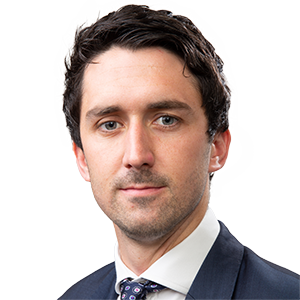
The liberalisation of sponsorship rules under the Olympic Charter: Team GB’s reaction
Co-authored by Anna Phillips
Earlier this year, the International Olympic Committee (the IOC) postponed the 2020 Tokyo Olympic Games due to the outbreak of COVID-19. With athletes potentially being unable to compete for the foreseeable future and facing an additional year of training for the Olympics, the relationship between athlete and sponsor may have become more important than ever.
Sponsorship rules under the Olympic Charter
Rule 40.3 of the Olympic Charter governs how athletes and their personal sponsors can commercialise their image or name in any advertising (including online, broadcast, TV, radio or physical appearances) during the Games Period, which, for Tokyo 2020, was due to be from 14 July 2020 to 11 August 2020 before its postponement.[1] The IOC delegates responsibility for the implementation of Rule 40.3 to each National Olympic Committee (the NOC), which is responsible for ensuring the compliance of their team and personnel with the Olympic Charter.[2] Historically, Rule 40.3 operated a blanket ban on athletes advertising their personal sponsors during the Games Period:
“Except as permitted by the IOC Executive Board, no competitor, coach, trainer or official who participates in the Olympic Games may allow his person, name, picture or sports performances to be used for advertising purposes during the Olympic Games.”[3]
Some argue that the blanket ban was primarily used to protect the exclusivity of the IOC’s partner programme.[4] This programme grants the IOC’s “(TOP)” sponsors category-exclusive marketing rights to the Summer, Winter and Youth Olympic Games.[5] However, critics of Rule 40.3 have argued that modern athletes depend heavily on their visibility during each Olympics to earn sponsorship revenue and that the blanket ban unjustly restricted athletes’ economic opportunities.[6]
Germany’s ruling against Rule 40.3
Amidst such criticism, Rule 40.3 became the subject of a legal ruling by Germany’s national competition regulator in February last year,[7] in which the regulator deemed that the restrictions shaped by Rule 40.3 were “likely to be too far-reaching”.[8] The regulator subsequently decided to lift the obligation on German athletes to clear their personal marketing activities with Germany’s NOC ahead of the Olympics, provided that athletes abide by prescribed guidelines in accordance with German law.[9]
The IOC’s amendment to Rule 40.3
In light of Germany’s ruling against Rule 40.3, the IOC updated Rule 40.3 to its current wording:
“Competitors, team officials and other team personnel who participate in the Olympic Games may allow their person, name, picture or sports performances to be used for advertising purposes during the Olympic Games in accordance with the principles determined by the IOC Executive Board.”[10]
However, the IOC remarked that “there is no one-size-fits-all for 206 NOCs” and, in line with protocol, the NOCs were given the responsibility to implement the newly revised Rule 40.3 in consideration of their local laws and national situations.[11]
How it changed for Team GB
Following the IOC’s amendment to Rule 40.3, the British Olympic Association (the BOA) implemented its own version of Rule 40.3 and issued updated guidelines in October last year. However, several well-known Team GB athletes argued that the guidelines did not go far enough and launched a legal challenge against the BOA.[12] Following this legal challenge, in March this year, the Team GB athletes managed to reach an agreement with the BOA in relation to the interpretation of Rule 40.3 in the United Kingdom (the Agreement).[13] Although the BOA is yet to publish its newly revised Rule 40.3 guidelines,[14] the Agreement is said to provide a greater level of commercial freedom for Team GB athletes whilst preserving the BOA’s unique funding model.[15]
What the Agreement means for Team GB athletes
All Team GB athletes are now permitted to promote their sponsors, and all sponsors are permitted to use athletes’ imagery before, after and during the Games Period provided that any such advertising is “generic” and in accordance with the principles set out in the Agreement.
Perhaps the most significant change, however, is that the BOA has allowed Team GB athletes increased opportunities to post “thank you” messages to sponsors on their personal social media accounts and websites. The BOA has recognised that athletes will want to post messages of thanks to their sponsors, some of whom may have been on a long journey together with the athletes in the years leading up to the Olympics. This will perhaps be especially relevant for the 2021 Tokyo Olympics due to its postponement. However, among other guidelines, the BOA has limited such posts to:
- one message per sponsor per event;
- no more than one message per sponsor on any one day;
- a maximum of three per sponsor throughout the Games Period; and
- an overall cap of 10 messages throughout the Games Period.
Conclusion
The Agreement between the BOA and Team GB athletes will potentially open the door to greater marketing opportunities for unofficial sponsors of the Olympics and Team GB, allowing them flexibility to use Olympic athletes in advertising during the Games Period. Additionally, following reports that the IOC’s Athletes’ Commission has plans to conduct a consultation on Rule 40 throughout 2020, it seems likely that further changes to Rule 40.3 may be on the horizon.[16] In the long run up to 2021 Tokyo Olympics, this may bring some relief to athletes and sponsors alike.
We have previously considered some of the implications of COVID-19 for sponsors in this article. Similarly, in October 2018, we published an article discussing Danish football’s commercial rights dispute, which is a further example of the potential challenges that individual sponsorship agreements can pose in the context of conflicting sponsorship agreements with teams and other sporting organisations.
[1] https://www.teamgb.com/docs/default-source/default-library/rule-40-athletes.pdf?sfvrsn=53c1e992_0
[2] https://www.easm.net/download/2018/Rule-40-versus-European-Competition-Law-A-New-Challenge-to-an-Ongoing-Sponsorship-Concern.pdf
[3] https://stillmed.olympic.org/media/Document%20Library/OlympicOrg/IOC/What-We-Do/Protecting-Clean-Athletes/Athletes-Space/Rule-40-Rio-2016-QA-for-Athletes.pdf
[4] https://www.bbc.co.uk/sport/olympics/50430198
[5] https://www.olympic.org/partners
[6] https://www.reuters.com/article/us-olympics-germany/olympics-german-athletes-score-advertising-win-over-ioc-for-games-idUSKCN1QG16V
[7] https://www.bundeskartellamt.de/SharedDocs/Meldung/EN/Pressemitteilungen/2019/27_02_2019_DOSB_IOC.html
[8] https://www.bundeskartellamt.de/SharedDocs/Entscheidung/EN/Entscheidungen/Missbrauchsaufsicht/2019/B2-26-17.pdf?__blob=publicationFile&v=2
[9] https://www.wfsgi.org/system/files/2019-10/2019-02-26_Rule40_GER%20%28003%29.pdf
[10] https://stillmed.olympic.org/media/Document%20Library/OlympicOrg/General/EN-Olympic-Charter.pdf
[11] https://www.olympic.org/athlete365/voice/open-letter-kirsty-coventry-on-rule-40/
[12] https://mail-teamgb.com/t/39CA-10IEP-E82P93GVC5/cr.aspx
[13] http://www.teamgb.com/docs/default-source/boa-legal/rule-40---summary-for-team-gb-athletes.pdf
[14] https://www.teamgb.com/rule-40
[15] https://mail-teamgb.com/t/39CA-10IEP-E82P93GVC5/cr.aspx
[16] https://www.olympic.org/athlete365/voice/ioc-ac-consult-rule-40/


